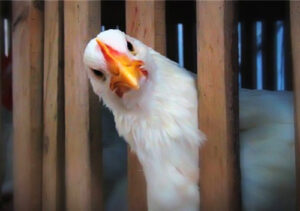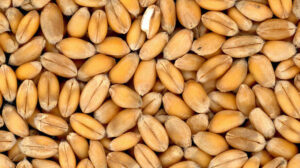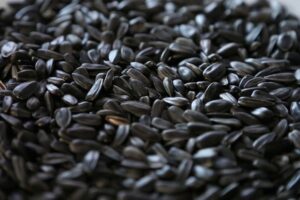
The Eastern Interregional Main Department of the State Service of Ukraine for Food Safety and Consumer Protection has announced the introduction of restrictions on imports of hatching eggs, poultry and poultry products from the Republic of Poland to Ukraine due to the registration of Newcastle disease in the country, the press service of the agency said.
According to the order of the Chief State Veterinary Inspector of Ukraine dated July 13, 2023, the ban does not apply to products that have been treated by a method that guarantees the destruction of the causative agent of this disease according to the requirements for the import (transfer) to the customs territory of Ukraine of food products of animal origin, feed, hay, straw, as well as by-products of animal origin and products of their processing, processing, approved by the order of the Ministry of Agrarian Policy and Food № 553 of November 16, 2018 year
Newcastle disease is known as pseudoplague of birds, or Asian plague – a contagious and fatal viral disease affecting all types of birds (chickens, pigeons, turkey, etc.). One of the most contagious poultry diseases in the world, caused by a virus of the Paramyxoviridae family, in which many birds die without showing any symptoms. Pseudorabies plague can cause death even in vaccinated poultry.
According to Polish media reports, the disease was detected for the first time in 50 years at a poultry farm in Bialystok district, where 43.41 thousand chickens are kept for slaughter.

Ukrainian exporters have already used almost 100% of the sugar export potential that was built into the forecast balance for the 2022/2023 marketing year, so to avoid a shortage of this product in the summer and autumn period, the government has limited its exports for the period from June 5 to September 15, the press service of the Economy Ministry said.
“Consumption of sugar grows in Ukraine in summer, so to avoid a shortage and price rises on the domestic market during this period, the government temporarily stops export quotas for this product,” the ministry said on its website on Thursday.
According to the State Customs Service, at the end of last week Ukraine exported more than 350 thousand tons of sugar and sugar products, which amounts to 95% of the forecast exports for 2022/2023 marketing year (MY).
As noted in the Ministry of Economy, the supply of the domestic market in 2022/2023 MY, taking into account the production of 1285 thousand tons of sugar and transitional residues, according to expert estimates, is 1776 thousand tons. To meet the needs of the domestic market in 2022/2023 yr Ukraine needs 1010 thousand tons. Export of sugar during the same period is expected at the level of 370 thousand tons.
As reported, the Cabinet of Ministers at its meeting on May 30 adopted a decree banning the export of sugar for the period from June 5 to September 15 this year.

The European Union (EU) and Ukraine need to find a solution that would allow Ukrainian farmers to work, exporting grain to the EU in the volumes they need, Croatian Minister of Agriculture Marija Vučković said at an online meeting with Ukrainian Minister of Agrarian Policy Mykola Solsky on Tuesday.
Vučković is confident that the restrictions on the export of Ukrainian agricultural products to Europe, which were introduced by the European Commission until June 5, should not be extended after this date, the press service of Ukraine’s Ministry of Agrarian Policy and Food said.
Solsky, in turn, thanked his colleague for understanding. He also said that Croatia became one of the signatories of the letter of the European Commission sent by the relevant ministers of 14 states of the European Union. In this appeal, they expressed concern about the temporary ban on importing Ukrainian agricultural products to five states of the European Union.

Ukraine benefits from the EU ban on the import of sunflower seeds to five neighboring countries, as domestic oil extraction plants are not sufficiently supplied with raw materials and are constantly experiencing a shortage, Stepan Kapshuk, director general of the Ukroliaprom association, told Interfax-Ukraine.
“Before the war there were 108 oil plants in Ukraine. Altogether they could produce 24 million tons of oil, of which 10 million tons were sunflower oil. However, these plants never managed to work at full capacity because of the lack of raw materials, which Ukraine exported. In the best seasons oil extraction plants managed to get 19 million tons of oil”, – explained the head of the industry association.
He said that previously the potential of Ukrainian oil extraction plants could produce 40-50 tons of oil per day. Because of the military actions in Ukraine stopped working about a dozen large operators, so daily plants produce 35 thousand tons of oil.
Kapshuk reminded that Ukroliaprom does not prevent the export of sunflower seeds, but proposes to introduce a mechanism of additional collection, in particular, export quotas.
“Now is the optimal moment for the government to take such a decision. Such a mechanism will bring about 3 billion UAH to the state budget, which can be used to pay salaries to the military,” – he stressed and said that the association has sent the relevant proposals to the Prime Minister.
Commenting on the agreement between the Ministry of Agrarian Policy of Ukraine and the Ministry of Agriculture of Bulgaria on signing a memorandum on sunflower oil, Kapshuk said that such a decision was caused by Bulgaria’s increase in its own production of sunflower oil.
According to his information, in recent years the number of oil extraction plants in Bulgaria has increased from 4 to 11. Last year the Bulgarian processors were able to buy Ukrainian sunflower seeds at affordable prices and increased the production of oil up to 250-300 thousand tons with the internal demand of about 150 thousand tons.
“They need to sell their own goods both on the domestic market and increase their exports,” explained the head of the industry association.
According to Kapshuk, Ukraine used to export butter to 124 countries. In recent years the geography of exports is narrowing and Ukrainian butter is sold to about 80 countries. Its main buyers are India, China, Europe and African countries.
The head of Ukroliaprom cited the experience of Ukroliaproduct ALC (Dikanka TM), which has established air shipments of organic sunflower oil to America, as a positive example of exporting to long distances.
At the same time, Kapshuk pointed out that Ukraine is actively pushed out of the Indian market by the Russian Federation, which has increased production of sunflower.
“It is not profitable for Ukraine to export oil over long distances because of high freight prices. It reaches $370 (probably per ton) on shipments to India alone. Therefore, exports to countries with a high number of Ukrainian diaspora is not profitable for our producers so far,” he said, stressing the importance of maintaining traditional markets for oil.

Ukrainian President Volodymyr Zelenskyy believes that there is “politics” in the decisions of a number of countries that have banned imports of Ukrainian grain.
“I am grateful to my neighbors who support us, but to be honest, there is politics there. We have the Black Sea blocked and we need help with weapons. We can’t risk relations with some countries,” he said Saturday in an interview with Italian media.
“And I understand that some political currents are taking advantage of this situation and instigating farmers to block grain shipments. But they have no right to block transit,” he said.
“We will solve these issues,” Zelensky stressed.

Agro-industrial holding Astarta does not expect a significant drop in income because of the ban on imports of agricultural products from Ukraine imposed by Poland and other neighboring countries, as it intends to export its products to Western European countries, representatives of the company’s board said at an online conference on Tuesday.
“We have permission to transit through these countries. Rather, our export targets are Western European countries, such as Spain, Italy, Greece and Croatia. We don’t see much risk to our revenues,” Infostrefa quoted Astarta Commercial Director Vyacheslav Chuk as saying from a conference call Tuesday.
Julia Bereshchenko, director of investor relations, expressed confidence that Astarta will be supported by expected sugar shortages in the EU and world market.
“Sugar shortages are expected not only in the EU, but worldwide as the world’s largest sugar producers, such as Brazil and India, begin to use sugar to produce ethanol. This could potentially reduce these countries’ exports,” she said.
As reported, Astarta agro-industrial holding, the largest sugar producer in Ukraine, received EUR65.16 million net profit in 2022, down 46.8% compared to 201.
The holding’s EBITDA shrank by 23.2% to EUR154.77 mln, while revenues increased by 3.8% to EUR510.07 mln.